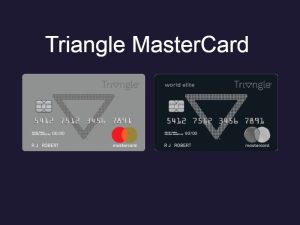Navigating the World of Alternative Investments: A Guide for Canadian Millennials
Introduction to Alternative Investments
Alternative investments, which consist of assets that fall outside the realm of traditional stocks, bonds, and cash, are gaining popularity among Canadian millennials looking to diversify their investment portfolios. This article offers an insightful exploration of the world of alternative investments, the potential benefits and risks, and how to successfully incorporate these assets into your financial strategy.
Exploring Types of Alternative Investments
The world of alternative investments is vast and diverse, offering opportunities in various sectors and asset classes. Here are some of the most common alternative investments:
- Private equity: Investments in private companies that are not listed on a public exchange, often through venture capital or buyout funds.
- Hedge funds: Pooled investment vehicles that use various strategies to generate returns, often with a higher risk-reward profile than traditional investments.
- Real estate: Investments in physical property, such as residential, commercial, or industrial properties, either directly or through real estate investment trusts (REITs).
- Commodities: Investments in physical commodities, such as gold, silver, or agricultural products, or commodity-linked financial instruments.
- Collectibles and luxury assets: Investments in tangible items, such as art, wine, classic cars, or even high-end sneakers, which may appreciate in value over time.
- The Benefits of Alternative Investments
Alternative investments can offer several benefits for Canadian millennial investors, including:
- Diversification: Adding alternative investments to a portfolio can help spread risk, as these assets often have low correlations with traditional investments like stocks and bonds.
- Potential for higher returns: Some alternative investments may offer the potential for higher returns than traditional investments, albeit with a higher degree of risk.
- Inflation hedging: Certain alternative assets, such as real estate and commodities, can act as a hedge against inflation, preserving your purchasing power.
- Access to niche markets: Alternative investments can provide exposure to unique, niche markets that may not be available through traditional investment channels.
- Risks and Challenges of Alternative Investments
While alternative investments can offer potential rewards, they also come with their share of risks and challenges:
- Illiquidity: Many alternative investments are not easily tradable, which can make it difficult to sell or redeem your holdings when needed.
- Higher fees: Alternative investments, particularly private equity and hedge funds, may have higher fees and management expenses than traditional investments.
- Limited transparency: Information on alternative investments may be less readily available, making it harder to assess risks and make informed decisions.
- Complexity: Some alternative investments may be more complex than traditional investments, requiring a deeper understanding of the underlying strategies and markets.
- Incorporating Alternative Investments in Your Portfolio
To successfully include alternative investments in your financial strategy, consider the following:
- Assessing your risk tolerance: Be honest about your risk appetite and investment goals before venturing into the world of alternative investments.
- Diversifying within alternative investments: Just as you would diversify across traditional investments, consider diversifying within alternative investments to spread risk.
- Working with experienced advisors: Seek guidance from financial advisors with expertise in alternative investments to help you navigate this complex investment landscape.
Future Trends and Opportunities in Alternative Investments
Stay informed and be prepared to adapt to evolving trends and opportunities in the alternative investment space:
- Technological innovations: Emerging technologies, such as blockchain and artificial intelligence, are disrupting traditional financial markets and creating new alternative investment opportunities.
- New investment products and platforms: The rise of fintech and digital platforms is democratizing access to alternative investments, making them more accessible to individual investors.
- Evolving regulatory landscape: As the alternative investment sector grows, regulatory bodies may implement new rules and guidelines to protect investors and ensure market stability.
Final Thoughts
Canadian millennials seeking to diversify their investment portfolios can benefit from exploring the world of alternative investments. By understanding the various types of alternative assets, the potential benefits and risks, and how to incorporate these investments into a well-rounded financial strategy, investors can be better prepared for the future. Staying informed of emerging trends and seeking guidance from experienced advisors will also play a crucial role in navigating the ever-evolving landscape of alternative investments.
“What makes alternative investments attractive for Canadian millennials?”
Alternative investments appeal to Canadian millennials due to their potential for diversification, higher returns, inflation hedging, and access to niche markets. They offer a way to spread risk and explore unique opportunities outside traditional investment channels.
“How can I start investing in alternative assets as a Canadian millennial with limited capital?”
Canadian millennials with limited capital can begin investing in alternative assets through digital platforms, robo-advisors, or REITs, which often require lower initial investments. Crowdfunding platforms and fractional ownership schemes also provide access to some alternative investments.
“What role do fintech and emerging technologies play in the future of alternative investments?”
Fintech and emerging technologies are democratizing access to alternative investments by creating digital platforms and innovative financial products. Blockchain, artificial intelligence, and other technologies also enable new investment opportunities within the alternative investment space.








